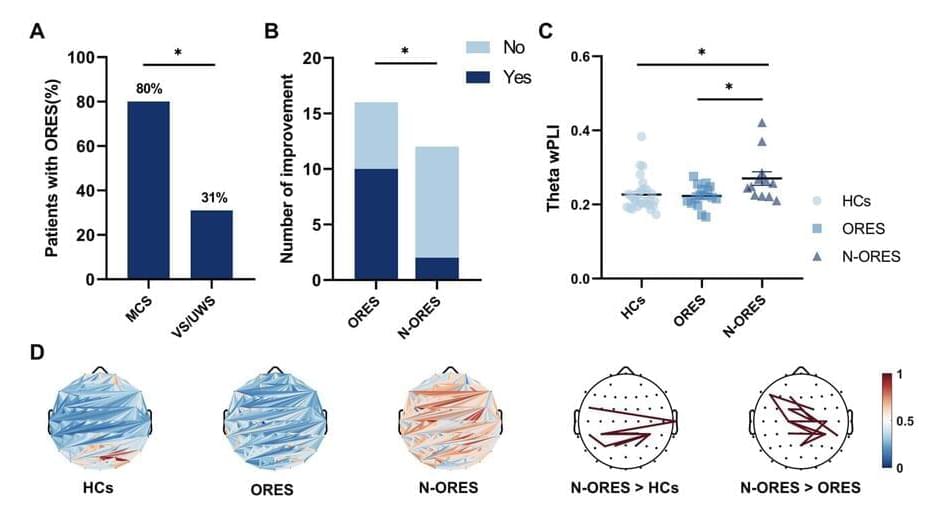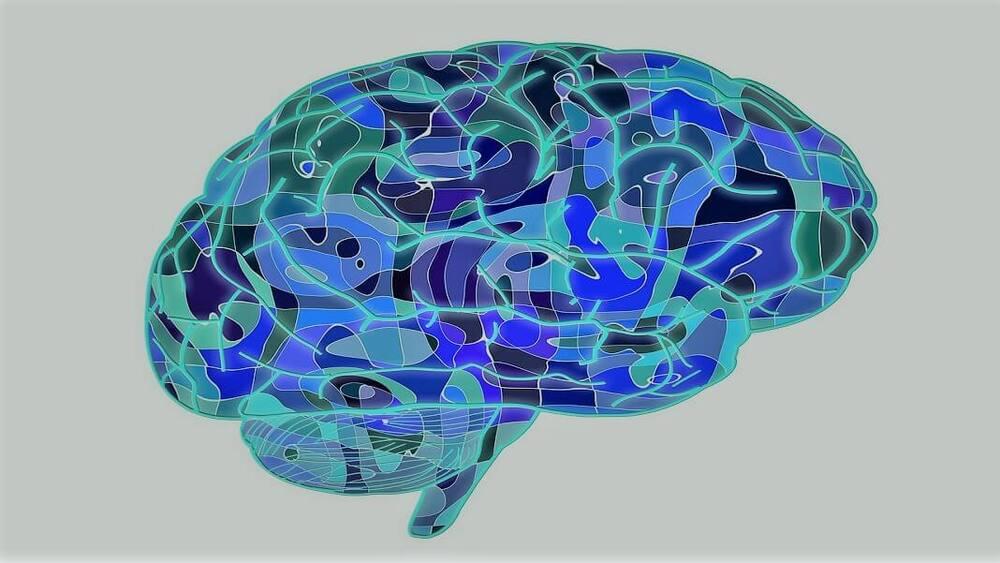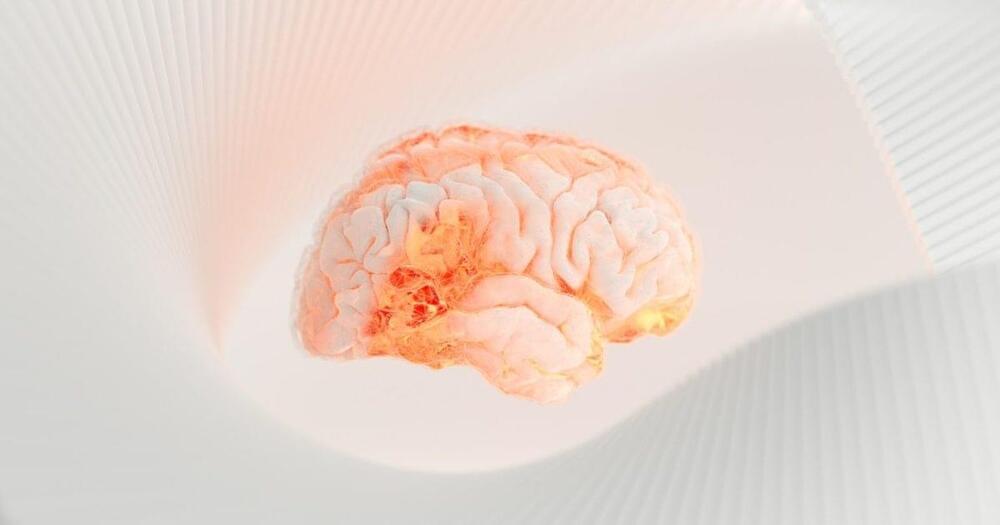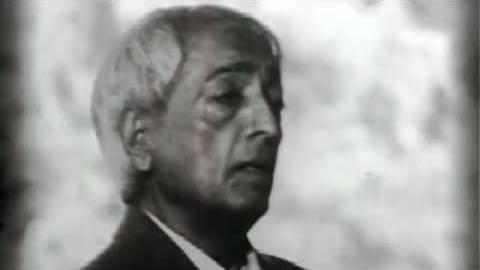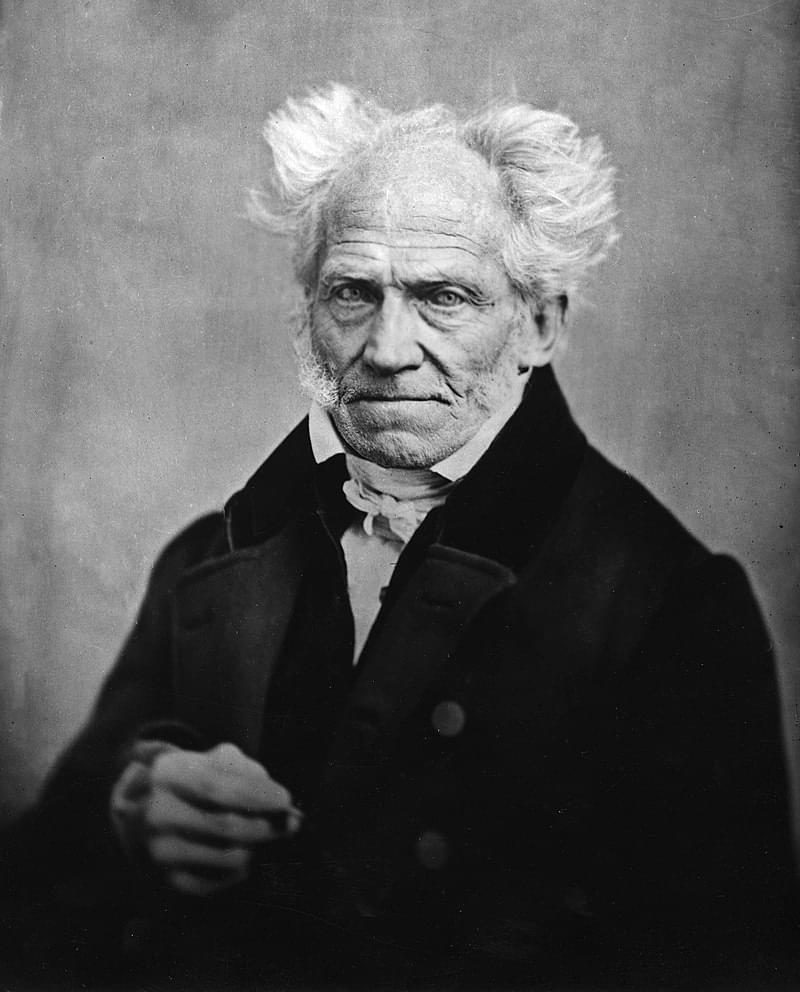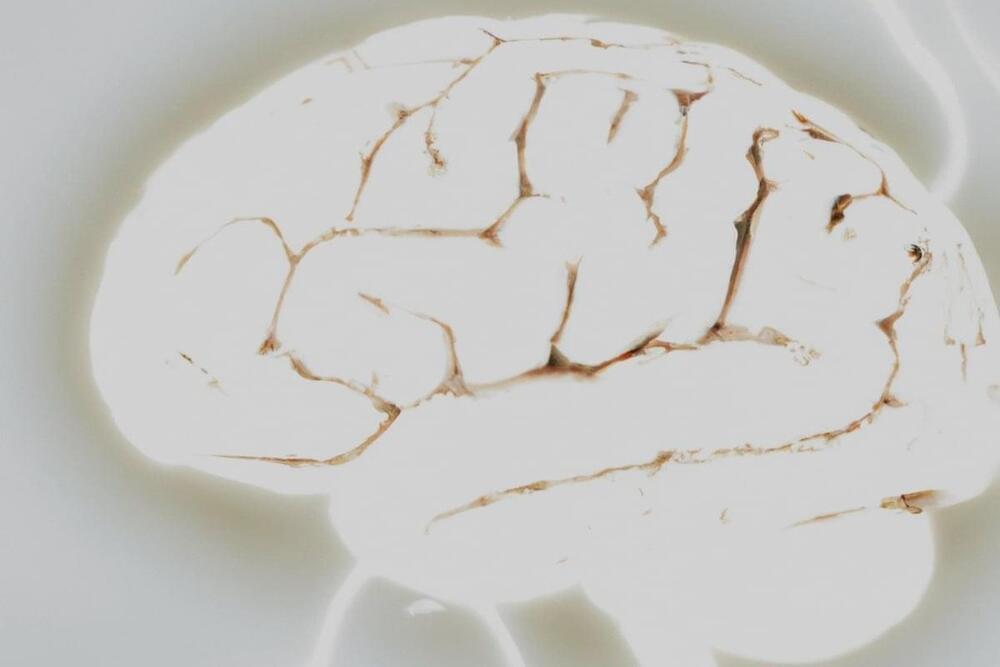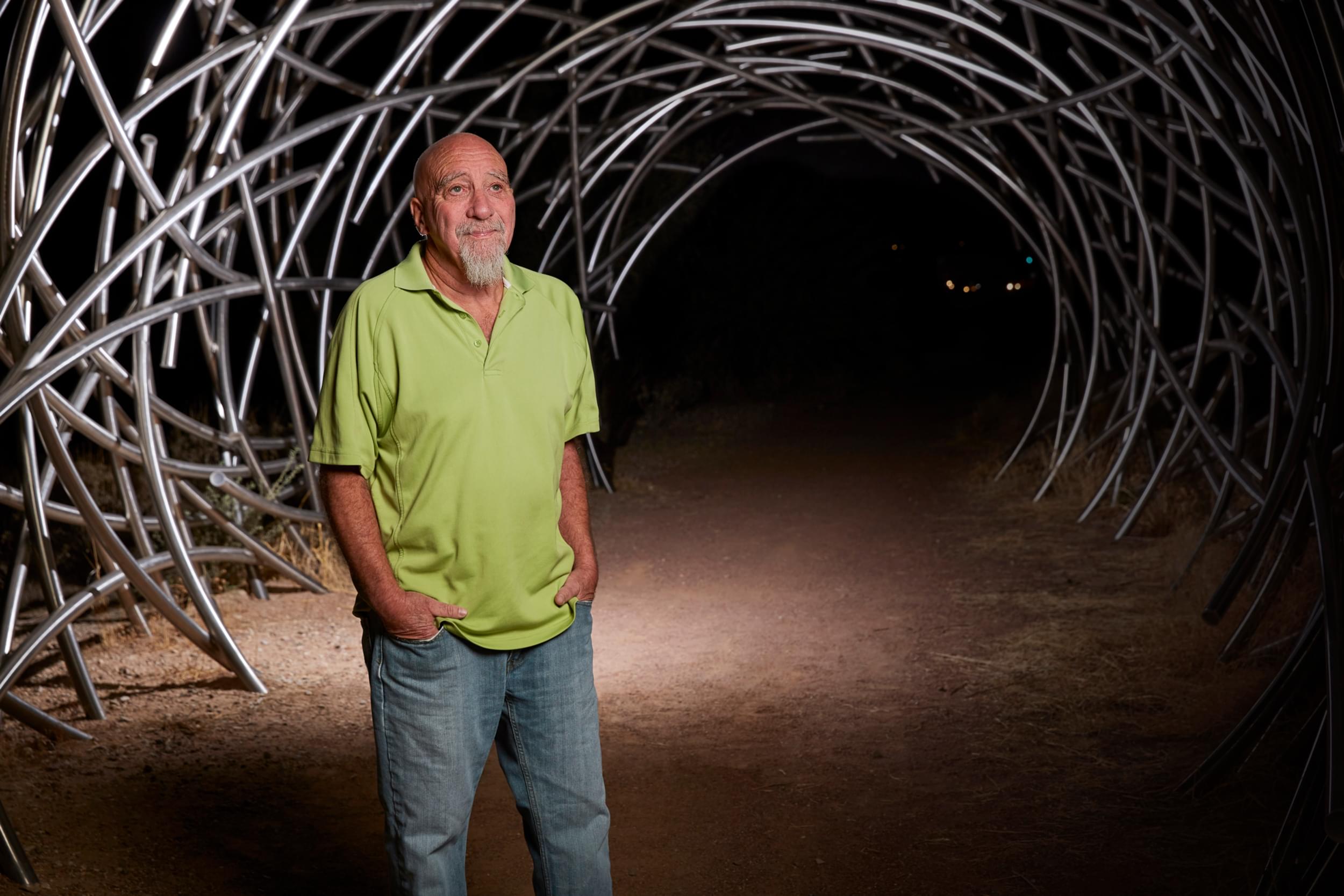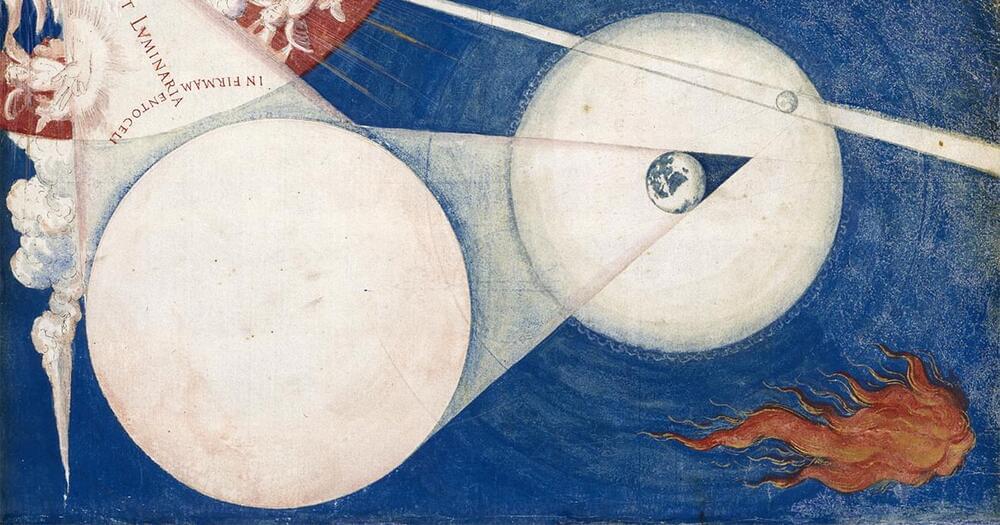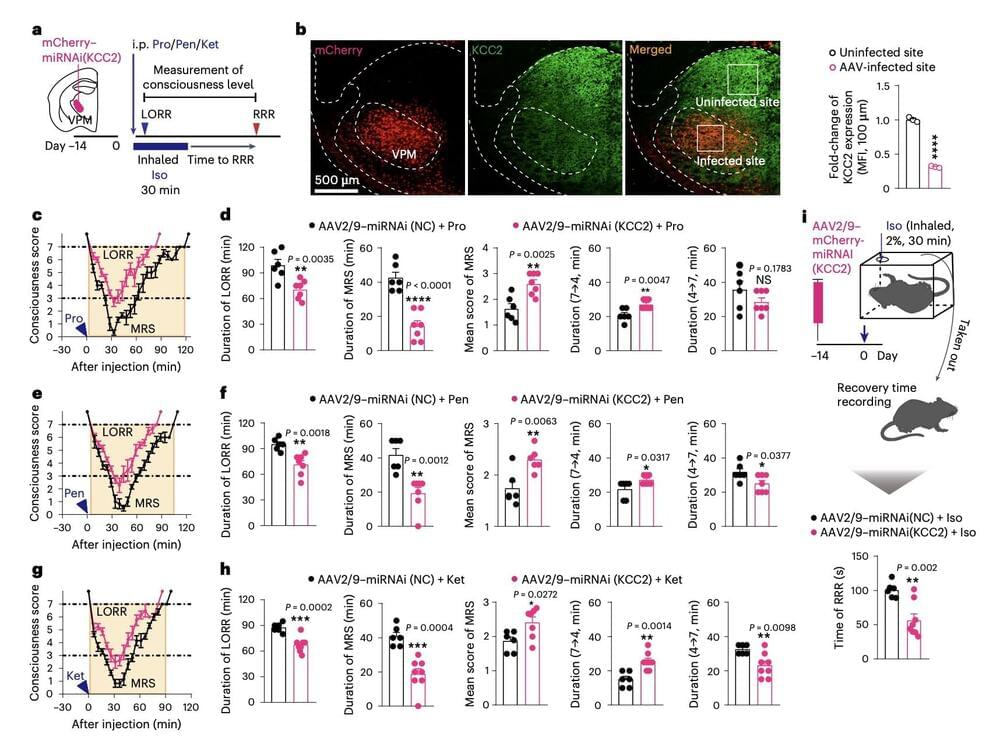Jun 1, 2023
Are the olfactory responses of patients in a coma or vegetative state signs of consciousness?
Posted by Shubham Ghosh Roy in categories: biotech/medical, neuroscience
Severe brain injuries or head traumas in humans can lead to various stages of so-called disorders of consciousness (DoC). These are states in which consciousness is either partly or entirely absent, such as a coma; unresponsive wakefulness syndrome, also known as a vegetative state; and minimally conscious state.
Accurately evaluating patients who have lost consciousness is of crucial importance, as it allows doctors to determine what treatments to administer and how to facilitate the re-emergence of consciousness. Typically, to clinically evaluate consciousness, doctors observe the behavior of patients in response to sensory stimuli, such as sounds or images.
For instance, while patients in a vegetative state are awake but continue to be unresponsive to external stimuli, patients with MCS exhibit some behaviors that indicate that they are conscious. So far, most methods to assess the consciousness level of patients rely on sounds or visual stimuli, yet olfactory stimuli could potentially prove useful too.
